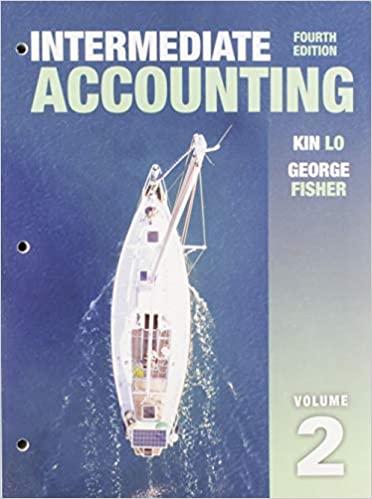On January 1, 2017, Timmins Resorts signed a long-term rental agreement with Uxbridge Properties. The agreement gave
Question:
On January 1, 2017, Timmins Resorts signed a long-term rental agreement with Uxbridge Properties. The agreement gave Timmins the exclusive right to use the specified property for a period of 10 years at a rental rate of $1.5 million per year paid at the beginning of each year. Timmins’ accounting staff concluded that the lease period did not constitute a major part of the 30-year useful life of the property, and that the present value of lease payments did not amount to substantially all of the $20 million fair value of the property. As a result, Timmins treated this transaction as an operating lease.
In 2019, management realized that the lease agreement was incomplete. In preliminary discussions, which were documented, Timmins and Uxbridge negotiators discussed the inclusion of an option for Timmins to purchase the property for $20 million at the end of the lease, when the property would be expected to increase in value to $30 million. As both parties agreed that the omission of the purchase option was accidental, the lease agreement was amended on December 31, 2019, to include the purchase option.
Timmins has a calendar year-end. The books for 2019 have not been closed. The company has an incremental borrowing rate of 8%, and depreciates similar property on a straight-line basis.
Required:
a. Briefly discuss why the amendment to the lease agreement could be considered either a change in estimate or an error correction.
b. Assume that the lease amendment is a change in estimate. Record the entries necessary to reflect the amendment and the adjusting entries on December 31, 2019.
c. Assume that the lease amendment is an error correction. Record the entries necessary to reflect the amendment and the adjusting entries on December 31, 2019.
Step by Step Answer:






